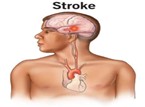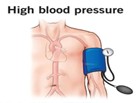Contribute
| Understand The Role Of Cholesterol In Heart Attack |
Dr. Indrajeet Tyagi and Dr. Iranna Hirapur
01/18/2024
High cholesterol is a condition in which you have too many lipids (fats) in your blood. It is also called hyperlipidemia or hypercholesterolemia. Your body needs just the right amount of lipids to function but if you have too many lipids, your body cannot use them all. Then extra lipids start to build up in your arteries and form plaque (fatty deposits). This plaque silently gets bigger and bigger within your arteries and if untreated for long time, the high cholesterol becomes dangerous. The only way to know you have high cholesterol is through a blood test. A blood test, called a lipid panel that tells you how many lipids are circulating in your blood. What is considered high cholesterol depends on your age, sex and history of heart disease. What are the man types of lipids? There are several types of lipids, the main are “good cholesterol†and “bad cholesterol.†Good cholesterol is called high-density lipoprotein (HDL) and you think of the “H†as “helpful.†Your HDLs carry cholesterol to your liver and liver keeps your cholesterol levels balanced by getting rid of the excess cholesterol. You must have enough HDLs to carry cholesterol to your liver otherwise; you will have too much cholesterol circulating in your blood. Bad cholesterol is called low-density lipoprotein (LDL). This cholesterol makes plaque form in your arteries and high-level LDL leads to heart disease over time. When to get your cholesterol checked? High cholesterol can start in childhood or adolescence. As per present medical guidelines, screenings should begin during childhood. · Children and teens: Get your cholesterol checked every five years starting at age nine or earlier in case of a child, whose parents have high cholesterol or a history of heart problems. · People assigned male at birth (AMAB): Get your cholesterol checked every five years until age 45, every one to two years from age 45 to 65, and after age 65, are checked every year. · People assigned female at birth (AFAB): Get checked every five years until age 55, every one to two years from age 55 to 65, and after age 65, are checked every year. What are the causes of high cholesterol? Lifestyle factors and genetics both play a role in causing high cholesterol. Lifestyle factors include: · Diet: Some foods may raise or lower your cholesterol. Consult your healthcare provider or a nutritionist to discuss your diet. Generally, cholesterol comes from animal foods such as meat, fish, and eggs. In case of milk, remove cream two to three times before using it. Triglycerides are a type of fat (lipid) found in your blood. When you eat, your body converts any calories it does not need to use right away into triglycerides. They are found in foods that we eat, for example in meat, dairy products. and cooking oils. · Lack of exercises: Physical activity like Yoga, walking, bicycling, and aerobic exercise improves your cholesterol numbers by helping your body to produce enough “good cholesterol.†· Stress: Stress triggers hormonal changes that cause your body to produce cholesterol. · Drinking alcohol: Too much alcohol consumption can raise your total cholesterol. · Smoking and tobacco use: Smoking lowers your “good cholesterol†(HDL) and raises your “bad cholesterol†(LDL). What are the Symptoms of high cholesterol? High cholesterol does not cause any symptoms for most people until the high cholesterol causes other problems in your body. How does high cholesterol affect your body? Over time, high cholesterol leads to plaque buildup (atherosclerosis) inside your blood vessels and you face a higher risk of many different medical conditions depending on how much blood vessels are clogged. 1) Coronary artery disease (CAD): The term “heart disease includes CAD) that is also called coronary heart disease (CHD) or ischemic heart disease, and is the most common form of heart disease in the U.S. and the leading cause of death and about 1 in 5 people who die from CAD are under age 65. CAD happens when atherosclerosis affects your coronary arteries and lead to a heart attack or heart failure. That is why it is important to get your cholesterol checked starting at a young age because many people do not realize it is happening until they get chest pain (angina) or another sign of a heart attack. 2) Carotid artery disease: When plaque narrows or atherosclerosis affects your carotid arteries that carry oxygen-rich blood to the large, front part of your brain. When your brain cannot get enough blood, you may have carotid artery disease that can lead to a transient ischemic attack (TIA or “mini-strokeâ€) or a stroke. 3) Peripheral artery disease (PAD): When atherosclerosis affects the “peripheral†arteries in your legs or arms, it is called (PAD) which is dangerous because it often causes no symptoms but you start to feel symptoms when a peripheral artery is at least 60% blocked. A key symptom is a leg cramp. PAD is not the same as coronary artery disease (CAD), but the two conditions are related. People with one condition are likely to have the other one, too. 4) High blood pressure: High blood pressure (hypertension) and high cholesterol are two of the biggest causes of heart disease. In the U.S., about 1 in 3 adults have high blood pressure, and about 1 in 3 adults have high cholesterol. What medical problems affect our cholesterol levels? Medical problems and cholesterol have a two-way relationship. High cholesterol can cause medical problems like atherosclerosis and some medical conditions such as chronic kidney disease (CKD), thyroid disease, lupus, polycystic ovary syndrome (PCOS), diabetes mellitus, and HIV can cause high cholesterol. How can we lower our cholesterol? You need to make some simple lifestyle changes like eat less saturated fat and trans-fat, eat fewer fried foods, and processed foods such as prepackaged desserts and snacks, eat less sodium (salt), stop smoking and using tobacco products. Take things one-step at a time, since the best plans take time to work.
by Dr. Indrajeet Tyagi and Dr. Iranna Hirapur




You may also access this article through our web-site http://www.lokvani.com/



